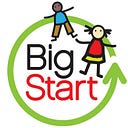Together for Early Years: Campaign Platform
High quality Early Childhood Education and Care (ECEC) services enhance children’s holistic development (including educational outcomes), support families, promote social inclusion, reduce child poverty and enhance future employability. Affordable services facilitate workforce participation for parents; particularly for women.
Despite these benefits and significant increases in investment, Ireland spends just 0.2% of GDP on ECEC. This is far below the European average of 0.8% and the UNICEF recommended benchmark of 1%. This funding gap has resulted in high fees for parents, extremely low pay for staff and a lack of financial sustainability for service providers. This directly undermines the government’s policy objectives and the benefits of high quality[1], affordable ECEC services.
Due to insufficient levels of government funding, ECEC services in Ireland have the highest fees in Europe[2], while being the lowest paid sector of the economy. Early Years Educators earn on average €11.46 per hour; 61% earn less than the Living Wage of €12.30 per hour[3]. Too many services cannot recruit and retain qualified and dedicated staff. Only 9% intend to work in the profession in five years’ time if “things stay the same”[4]. Unsurprisingly this has resulted in an average staff turnover of 23% per year; diminishing the quality of experience for children and the sustainability of services.
The current ECEC funding model does not work. Providers are put in an almost impossible position whereby the two goals of affordability and maintaining high quality standards are placed in opposition to each other. Only the development of a new funding model will facilitate the substantial investment needed to reduce fees, increase pay and ensure the sustainability and quality of services that are delivered in the best interest of children.
Together for Early Years is calling on the next Government to:
1. Double funding[5] to ECEC services on an incremental basis over the lifetime of the next government, starting in September 2020, bringing Ireland closer to the EU average
2. Provide the necessary funding and mechanism for a Living Wage for Early Years Educators in 2020 as a first step towards professional pay and recognition
3. Introduce a new funding model that supports affordability and accessibility for parents, high quality experiences for children and professional pay and conditions for educators, as committed to in First 5, the whole of Government strategy for babies, young children and their families[6]
4. Establish a streamlined inspection process with a graded compliance system
5. Support effective policy development by engagement with the ECEC sector through respectful negotiation and a co-design approach
NOTE: The Early Years Alliance is an umbrella group consisting of Association of Childhood Professionals, the Federation of Early Childhood Providers, the National Community Childcare Forum, the National Childhood Network, Seas Suas and SIPTU.
[1] Quality standards have been developed by the Dept. of Education and Skills and the Dept. of Children and Youth Affairs
[2] Eurydice Report (2019)
[3] POBAL Early years Sector Profile 2018 / 2019 (2019)
[4] SIPTU Early Years Professionals Survey 2019 (2019)
[5] First 5 commits to doubling state spending on Early Learning and Care within 10 years
[6] As part of First 5 an international expert group has been established to develop a new funding model https://www.gov.ie/en/press-release/d5dfdb-minister-zappone-announces-expert-group-to-develop-a-new-funding-mod/
